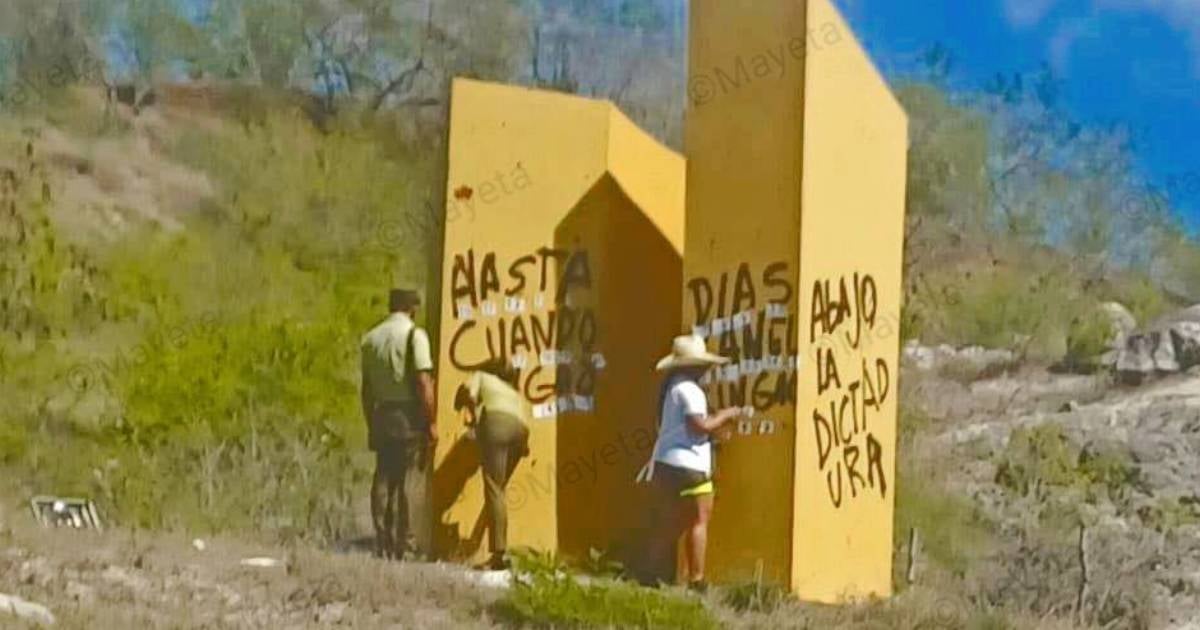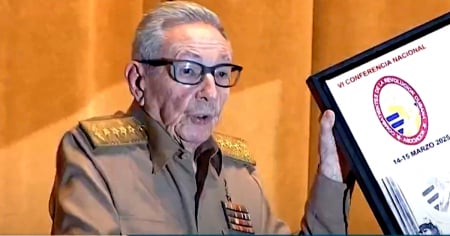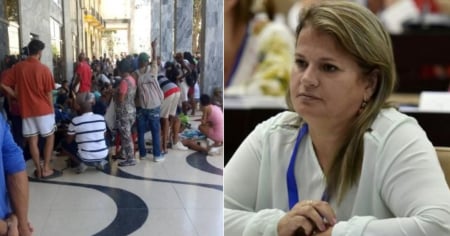
Related videos:
The Ministry of the Interior (MININT) deployed a significant security operation in Santiago de Cuba following the appearance of anti-government posters in the village of “El Oasis”, located in Siboney, along the coastal area of the city.
According to independent communicator Yosmany Mayeta, the messages written on the signs expressed popular discontent with phrases such as “How much longer without a home,” “Díaz-Canel without a home,” and “Down with the dictatorship”, slogans that have been used in other protests against the Cuban regime.

The authorities' response was swift. Witnesses indicate that the area was militarized and forensic experts were sent to the site to photograph the posters and collect fingerprints, in a deployment similar to that of a crime scene.
In addition, the coastal area was cordoned off to prevent citizens from taking photographs, but some images of the operation managed to spread on social media.
"They closed off the area, not allowing cars to stop, but people always find a way to gather evidence," commented Mayeta, who shared images of the location on her platforms.
In the images shared by Mayeta, you can see the structure where the posters appeared before being intervened by MININT agents and workers, who attempted to cover them with paint.
In recent years, Cuba has been the scene of multiple expressions of popular discontent expressed through posters and graffiti in public spaces.
These actions, directed against the ruler Miguel Díaz-Canel, the Communist Party, and the Revolution, have reflected the growing discontent of the population due to the economic crisis, blackouts, and government repression
- Matanzas (marzo de 2024): Tras una jornada de intensas protestas el 17 de marzo, apareció un poster with the phrase "Díaz-Canel singao" on the wall of the popular Playa del Tenis en el viaducto de la ciudad de Matanzas.
This incident happened hours after a large protest in the town of Cárdenas, where residents took to the streets with pots and pans, joining demonstrations in several cities across Cuba.
- Alquízar, Artemisa (mayo de 2024): The Domingo Lence walkway was covered in graffiti this morning que decían "¡Abajo Canel!" y "Libertad", escritas con pintura azul.
These protests occurred after long power outages affected the community, reflecting the residents' discontent.
- Santiago de Cuba (abril de 2024): Cerca de la céntrica Plaza de Marte, apareció unsign against Díaz-Canel on the wall of a house, pocas semanas después de massive protests in the city. Parte del cartel fue rápidamente cubierta con pintura oscura por las autoridades.
- La Habana (septiembre de 2023): En el municipio de Centro Habana a message that said "Diasca, your mother's cunt" fue visto sobre una pared ubicada en la esquina de las calles Campanario y Figuras.
- Bauta, Artemisa y Camajuaní, Villa Clara (junio de 2022): Messages like "Díaz-Canel is an idiot"aparecieron en paredes de estas localidades tras prolongados apagones.
In Bauta, the graffiti was made on the branch of the Banco Popular de Ahorro after the neighbors endured more than eight hours without electricity.
Frequently Asked Questions about Protests and Repression in Cuba
What prompted the deployment of MININT in Santiago de Cuba?
The MININT launched a strong security operation in Santiago de Cuba following the appearance of anti-government posters in the town of “El Oasis,” expressing public discontent with messages such as “How long without a home” and “Down with the dictatorship.”
How do the Cuban authorities react to protests and public demonstrations?
Cuban authorities often suppress these expressions of discontent by using security forces, experts, and specialized personnel to identify and imprison protesters, as has been seen in various reported incidents on the island.
Why are protests in Cuba increasing?
Protests in Cuba are escalating due to the severe economic crisis affecting the country, characterized by food shortages, prolonged blackouts, and increasing precariousness in basic services. The lack of effective responses from the government exacerbates public discontent.
What measures has the Cuban government taken in response to the supply crisis?
The Cuban government has implemented measures such as reducing the weight of bread in the basic food basket and selling it on alternate days to address the shortage of basic supplies, although these measures have not resolved the supply crisis in the country.
Filed under:





